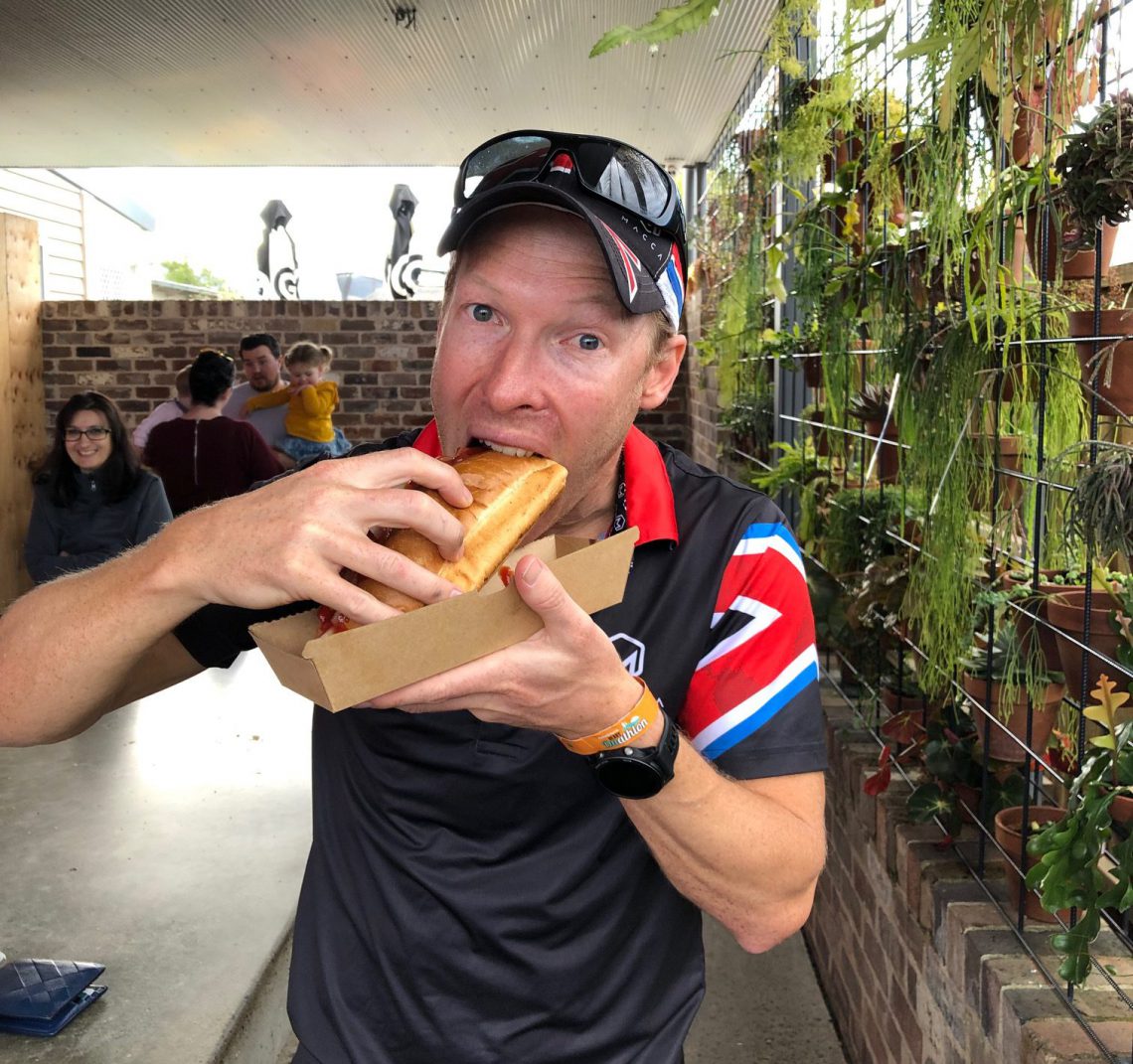
You are what you eat?
We’ve all heard the statement ‘you are what you eat’ and if you haven’t you have now! Eating food which is healthy will make us healthy, while food which is loaded with sugar and little nutrients will make us fat.. or fast? Gels, sugary drinks are the go to ‘rocket fuel’ for athletes around the world. I guess we really are what we eat!? Unfortunately, it’s not so straightforward as that, our bodies are complex, but here are some lessons from my triathlon journey.
Eating For The Effort
A balanced training plan will provide some days which create high load and others with little. When you have a training plan it can help then to eat for the effort that will be required. A four-hour bike ride consumes a lot of energy, so make sure the meal previous to the activity is appropriate. I’m not encouraging overeating, but you also don’t want to be trying to skimp on the food your body will need for the planned effort. Think about foods that provide you with sustained energy for these meals.
Eating for performance and eating to lose weight can be quite different directions. However, in my experience, reducing my intake of pasta and rice by ~10% helps to lean me up without a large impact on my training. It takes several weeks to lose 1-2kg, and I only do this for my A race, as long term I’m at higher risk of injury / poor performance.
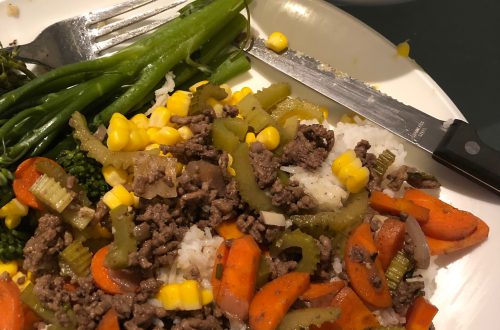
Eating During Training
There is nothing worse than running out of energy (bonking) when you are far away from home. Thankfully, my worse case of this was only about 5km from home running, but it’s still a horrible feeling and the walk home took forever! Eating during training can provide the ‘rocket fuel’ to keep the intensity going to the end. Even if you’ve eaten for the effort the night before, as you go longer with intensity your body will need more fuel. Eating foods which are easy to digest is key during training. For example beef jerky probably isn’t the best food choice during your next half marathon race, instead, a banana will go down much easier. Intensity will dictate the food you can eat.
What you consume or eat during training will depend on the duration/intensity of the session. Here are my rules:
Low Intensity
<120mins – Just water – it is important if doing this that you keep the effort low, spend too much time in Z3 and you may get into trouble. If going over 60mins I always carry a gel just in case.
>120mins – Water + muesli bar/gel/banana every hour.
Medium/High Intensity
<60mins* – Just water
60-90mins* – Electrolyte drink, gel/banana
90-120mins* – Electrolyte drink, 2 x gel/banana
*If doing race simulation practice, I’ll take on some nutrition every 20-30mins from the start to the end of the activity.
I’m a big fan of Spring Energy gels as its proper food in gel form, rather than some chemicals. Check them out.
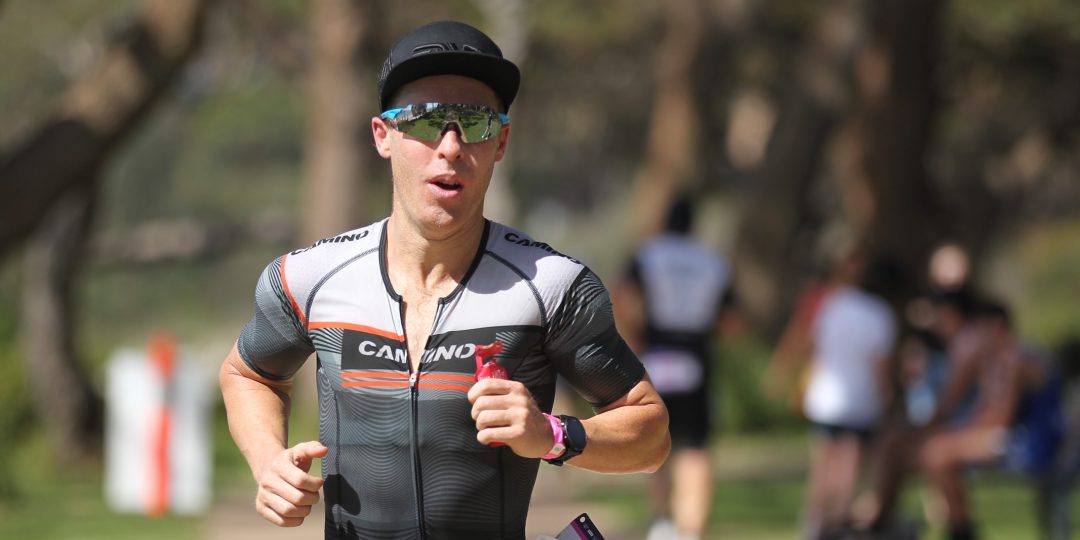
Eating For Recovery
It is so tempting to eat anything and everything after a big training session; you have done the work; you get the reward, right? The problem is your body is trying to recover from the training stimulus you have provided and needs the nutrient building blocks to do so. I love pancakes and have many times indulged with the family after a big session with some amazing pancakes, to only feel average 1-2hrs later. While having a healthier option such as fruit with oats and Greek yoghurt, I feel a lot better 1-2hrs later and my recovery is improved. Having a ‘special treat’ occasionally isn’t a terrible thing, but getting into a habit of eating for recovery will significantly aid overall performance.
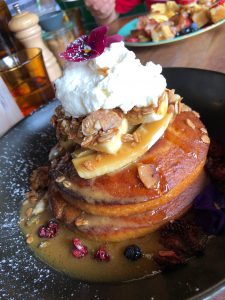
Next time you’re wondering what to eat after a race or big training session, ask yourself what would help my body to recover best? It’s hard to make excellent choices but when I do, I never regret it. Think ‘lots of colours’ to get the different nutrients your body needs for recover. Also, dont forget to drink plenty of water!!

Timing
Before
It was 7am, and I was running along the corniche in Doha. It was my last run, because of flying home later that morning. However, still some way from the hotel I got a terrible gut pain. I could no longer keep running, and I was praying I could make it to the safety of a toilet in time!
Having food right before my run wasn’t the best idea, the buffet at the hotel was amazing and hard to exercise control. Allowing enough time for your food to properly digest is very important for intense activities. Otherwise, due to reduced blood flow to your digestive system (a lot of blood is going to your leg muscles in running!), cramps, and stomach problems are common. Aim to finish any proper meal 2-3 hours before any intense exercise.
During
The problem with reduced blood flow during activity is that you cannot consume much. Depending on the intensity you may deplete more energy than you can replace. The key is slight amounts regularly. Experiment in training what works for you, I’ve found between 20-30mins is ok for me, but depends on the number of carbs in a gel. The higher the content the more time I need to digest. I’d suggest starting with each 30mins and adjust your timing on how your body responds.
After
Getting the food your body needs soon after the activity is best for recovery. Sometimes I don’t feel like eating if it has been intense, and this is where chocolate milk or a protein shake can be beneficial. I’ve always followed the 30min rule for consuming some protein. Getting some wholesome food in as soon as I can (within 30-60mins), after an activity always helps my longer-term recovery. If I leave it for hours, after training before eating a meal, my recovery isn’t as good.


You May Also Like
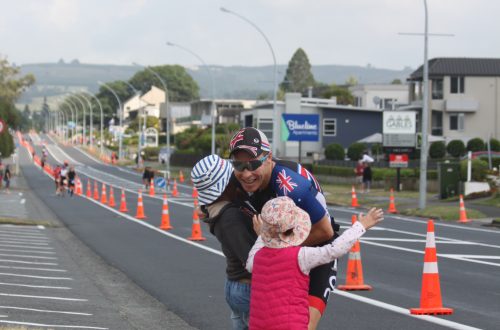
A Mindset of Gratitude
July 31, 2021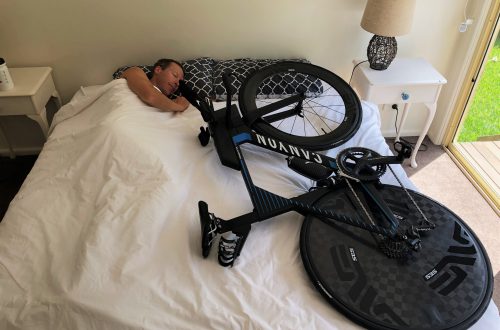
The Basics of Tapering
February 29, 2020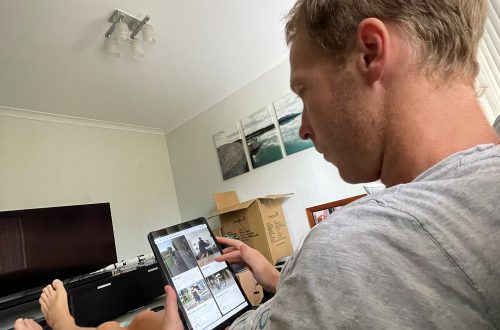
Social Media and Improving Performance
February 18, 2021Newsletter
Stay in touch, including tips and training sessions to improve.
Thank you!
You have successfully joined our subscriber list.
- luke@lukejonestri.com
- Sydney, NSW, Australia
Copyright © Luke Jones


2 Comments
Brendon
This has been very helping information thanks Luke.
Iv order a few spring energy packs to test also ??
Luke
Great to hear.
Hopefully, you’ll enjoy spring as much as I do. It’s not super sweet, as it’s just natural sugars. In my mind though it’s helpful for longevity, having and maintaining good health.